- Chuck's Stroke Warriors Newsletter
- Posts
- Issue #103: Your Story, Your Strength - Embracing the Journey of Stroke Recovery
Issue #103: Your Story, Your Strength - Embracing the Journey of Stroke Recovery
Turning Setbacks Into Comebacks Every Day
Hey Stroke Warriors, welcome back!
Let’s talk about something most stroke survivors feel but rarely say out loud: “I hate feeling like a burden.”
You used to be the one everyone leaned on. Now, you need help—and it’s hard. Maybe you feel guilty asking for a ride, frustrated needing reminders, or ashamed when the words won’t come out right. That quiet voice in your head? The one saying “I’m too much now”? It’s lying.
In this week’s issue, we’re flipping that narrative. You are not a burden. You are healing. And that’s one of the bravest things a person can do.
“I’m Tired of Feeling Like a Burden”
You used to be the strong one—the helper, the doer. Now? You rely on others for things you once did without thinking.
And that hurts. You see the worry on your partner’s face. You hear the sigh when you ask for help. You start saying “I’m fine” when you’re not—just to make others feel better.
The guilt creeps in. The shame. The fear that maybe... you’re too much now.
But here’s the truth: you are not a burden. You’re healing.
Let’s flip the story. Asking for help doesn’t make you weak—it makes you brave. Being vulnerable? That’s real strength. You are not “less than” because of what happened. You are more—more aware, more compassionate, more human.
It’s time to stop apologizing for surviving. You don’t owe anyone perfection. You owe yourself grace.
👉 Read this week’s newsletter to get expert advice and real-life strategies that work.
👉 Don’t miss a single issue — subscribe now and join a community that supports your journey!
Updates and Recent Developments in Stroke Recovery
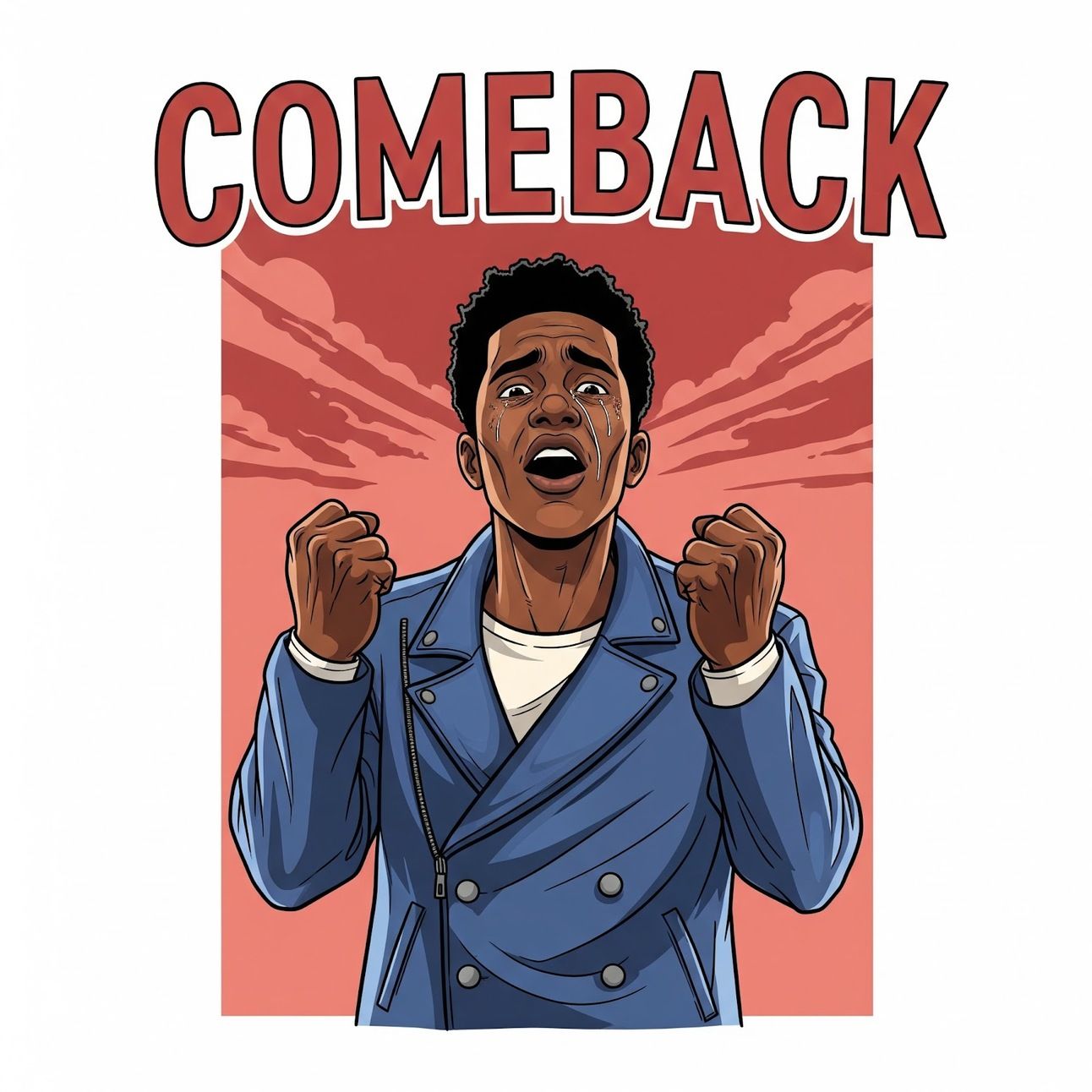
Updates and Recent Developments in Stroke Recovery
Your Story, Your Strength: Embracing the Journey of Stroke Recovery
Finding Hope and Power in Your Recovery
Every stroke survivor’s journey is unique, filled with ups, downs, and moments of unexpected strength. Whether you’re just starting your recovery or have been on this path for years, your story matters. Many survivors say that sharing their experiences—both the struggles and the wins—helps them heal and connect with others who truly understand123.
Real Stories, Real Strength
Small Steps, Big Wins: Shirley, who faced weakness and needed help with basic tasks, celebrated each new skill she regained. From making coffee to walking with a cane, every milestone gave her hope and motivation to keep going4.
Redefining Success: Maddi, who had a stroke at 22, learned that recovery isn’t just about getting back to “normal.” It’s about creating new possibilities and celebrating every bit of progress, no matter how small3.
The Power of Support: Many survivors credit their progress to family, friends, therapists, and support groups. Being part of a community reminds you that you’re not alone, and that others are cheering you on through every challenge56.
Actionable Takeaway
Set one small, meaningful goal for yourself this week—maybe it’s taking a few extra steps, trying a new hobby, or reaching out to another survivor. Celebrate your progress, however it looks. Research shows that focusing on small, achievable goals and connecting with others can boost both your physical and emotional recovery78.
Curated Resources for Stroke Survivors
Inspiring Survivor Stories: Read or watch real stories from other survivors for encouragement and ideas253.
Mental and Physical Recovery Tips: Explore simple, practical steps to support your body and mind during recovery7.
Community and Support: Find local or online stroke support groups to share experiences and get advice6.
Creative Recovery: Discover how art, writing, or music can help you rebuild identity and find joy during recovery9.
Remember, your journey is your own. Every step—no matter how small—is a sign of your strength. Sharing your story can inspire others and remind you just how far you’ve come.
https://www.stroke.org.uk/sites/default/files/My_Stroke_Victory.pdf
https://www.allied-services.org/miracle-stories/life-after-stroke-shirleys-story/
https://www.wellspan.org/articles/2024/05/stroke-patient-stories
https://www.stroke.org/en/about-stroke/types-of-stroke/hemorrhagic-strokes-bleeds/eileens-story
https://idhi.uams.edu/stroke-program/news/stroke-survivor-stories/
Thoughts and Insights:
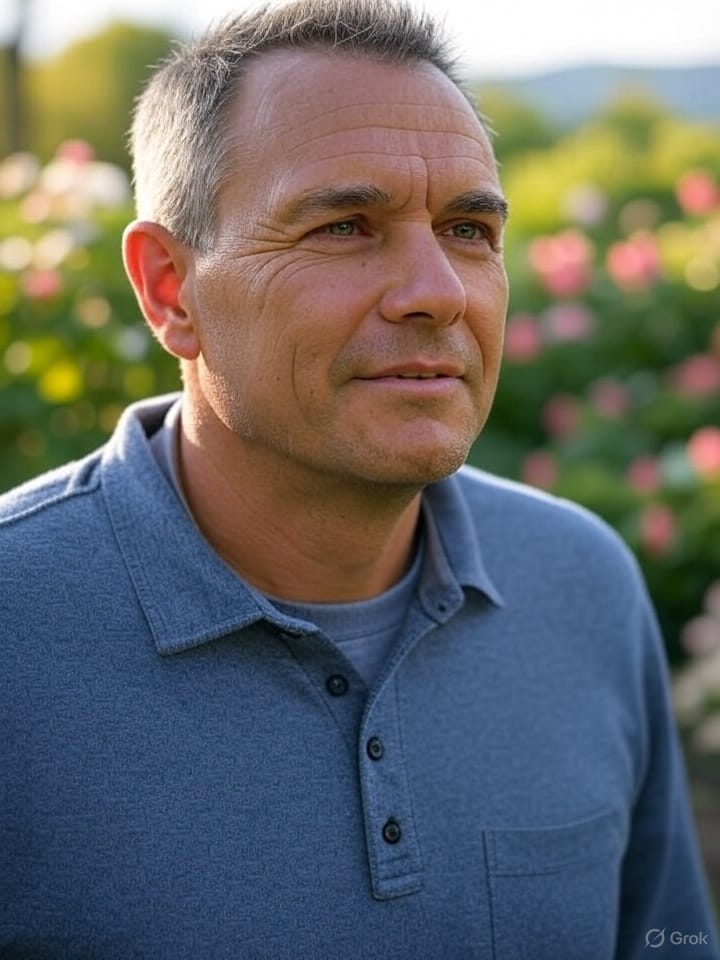
Your Story, Your Strength: Embracing Stroke Recovery with Grit, Grace, and a Whole Lot of Guts
Your Story, Your Strength: Embracing Stroke Recovery with Grit, Grace, and a Whole Lot of Guts
Because the comeback is stronger than the setback.
Introduction: When Life Flips the Script
One minute, you're pouring your morning coffee. The next? You're in a hospital bed, dazed, scared, and staring at a word you never thought you'd see on your chart: stroke.
Let’s be honest—it’s terrifying. But also? You’re still here.
A stroke knocked you down. But it didn’t knock you out. And that’s your power.
This isn’t another pamphlet full of medical jargon. This is real talk from someone who's been there. It’s about reclaiming your story—not who you were before, but who you are becoming.
Let’s walk through this together.
The Stroke Changes You—But It Doesn’t Define You
Let’s bust some post-stroke myths:
“I’m broken.”
“I’ll never be the same.”
“I’m a burden.”
These thoughts are common—and completely normal. But they’re not the truth.
You are still you. And recovery isn’t about going back—it’s about going forward.
This Is a New Chapter, Not the End
Think of it like this:
When a tree is damaged, it doesn’t stop growing—it just finds a new way to reach the sun.
Your life didn’t end the day of your stroke. It changed. But you're still growing.
Tiny Wins = Real Progress
Recovery isn’t one big leap—it’s a thousand tiny steps. And every single one counts.
Did you:
Put on your shirt by yourself?
Speak a new word today?
Make it through the day without crying?
That’s progress. Celebrate it.
Celebrate What You Can Do
Don’t wait to feel "normal." Celebrate what you can do now:
Got out of bed? Win.
Asked for help? Double win.
Didn’t quit today? Triple crown.
Each step forward matters.
Your Mindset Is a Game Changer
There’s physical therapy, speech therapy, occupational therapy… but where’s the therapy for your mind?
Here’s what helps:
Be kind to yourself. You’d never rush a friend through this.
Forget perfect. You’re human, not a machine.
Talk to someone. A therapist, a support group, or a good listener.
Your emotions matter just as much as your muscles.
Your Story = Your Strength
Even if you don’t feel strong right now, you’ve already proven something powerful:
You’re still here.
You’re still trying.
You’re choosing healing, one hard day at a time.
That’s what strength looks like. And someone else out there needs to hear your story someday.
The Power of Your People
You don’t have to do this alone. Build your recovery team:
Family who cheers you on (even when they don’t get it)
Therapists who push you (and sometimes annoy you)
Fellow survivors who just know
That one nurse who made you feel seen
Asking for help can feel tough. Try simple things like:
“Can you drive me to therapy?”
“Can we just hang out today?”
“I need someone to listen, not fix.”
Let people show up. They want to.
Real-Life Stroke Survivor Hacks
Forget the medical textbooks—here’s what actually works:
Sticky notes on everything
Timers for meds and naps
Voice-to-text apps
Laughter daily, even if it’s at yourself
A progress journal—photos, notes, even your setbacks
Energy Is the New Currency
Your energy is gold now. Use it wisely.
Say no more often
Rest before you're wiped out
Ask: “Is this worth it today?”
Spoiler: The spice rack can wait.
FAQ: Real Questions, Real Talk
Will I ever feel normal again? Maybe not the old normal—but a new one? Yes. And sometimes it’s even better.
How do I stay motivated when progress is slow? Focus on today. Reward yourself. Unfollow energy vampires.
What if my family doesn’t understand? Gently teach them. Let them in. But don’t carry their confusion.
Is it normal to feel depressed or angry? Totally. Talk to a pro. You deserve emotional healing too.
From Surviving to Thriving
Healing isn’t just about getting better—it’s about rebuilding your life.
Thriving might look like:
Starting a small garden
Journaling your story
Speaking up about stroke recovery
Learning something new—just because you can
Final Thoughts: Start Right Where You Are
Recovery is wild. It’s messy, exhausting, hopeful, ridiculous, and sometimes beautiful.
But it’s yours. And that means it’s worth it.
So today—just start. Breathe. Move. Ask for help. Laugh. Try again tomorrow.
And never forget:
Your story is your strength. Own it. Live it. Share it.
Want more real talk and recovery inspiration? Share this article with someone on their journey. Or better yet—tell your own story. The world needs it.
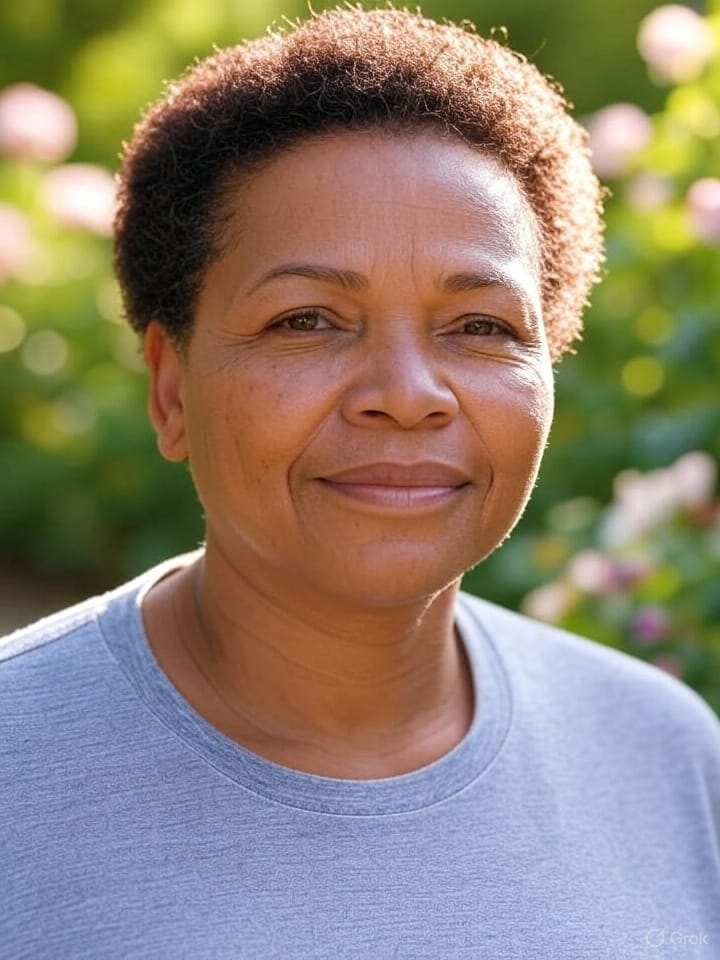
Emotional Coping Strategies
Emotional Coping Strategies
Healing Isn’t Just Physical
Your mind and heart need just as much care as your body during stroke recovery. Emotional healing isn’t a luxury—it’s a necessity. These simple, yet powerful strategies can help you stay grounded and resilient through the ups and downs.
1. Celebrate the Small Wins
Got out of bed without help? Used your affected hand for a task? Made it through a rough day? That counts. Document victories in a journal or share them with a friend. Small wins add up.
2. Talk Back to the Inner Critic
That voice in your head saying “you’re not progressing fast enough”? Challenge it. Replace it with reminders like: “Recovery takes time,” or “I’m doing my best, and that’s enough.”
3. Connect with Fellow Survivors
No one truly gets it like someone who’s walked this road. Whether it’s an online group, a local meet-up, or even a stroke recovery podcast, community can remind you that you’re not alone.
4. Use Guided Imagery or Meditation
Simple breathing exercises or guided meditations can help you manage fear, reduce stress, and reconnect with your body. Even 5 minutes a day can help shift your mindset.
5. Allow Yourself to Grieve
It’s okay to mourn what was lost. Recovery includes acceptance—and that doesn’t mean giving up. It means acknowledging the truth so you can move forward with clarity and strength.
Silly Humor Section

Laugh Lines
💬 Laugh Lines: “Your Story, Your Strength: Embracing the Journey of Stroke Recovery”
Why did the stroke survivor start a blog called “One Step at a Time”? Because their journey had so many plot twists… and a few wobbly steps!
The other day, I was telling my friend about my stroke recovery milestones. I said, “First I conquered stairs, then buttons, then the dreaded sock-on-one-foot challenge.” She said, “You’re basically leveling up like a video game hero!” I replied, “Yep—except my power-ups come from naps and peanut butter toast.”
You’ve already proven how strong you are just by showing up each day. Keep writing your story—one laugh, one step, one triumph at a time. 💛
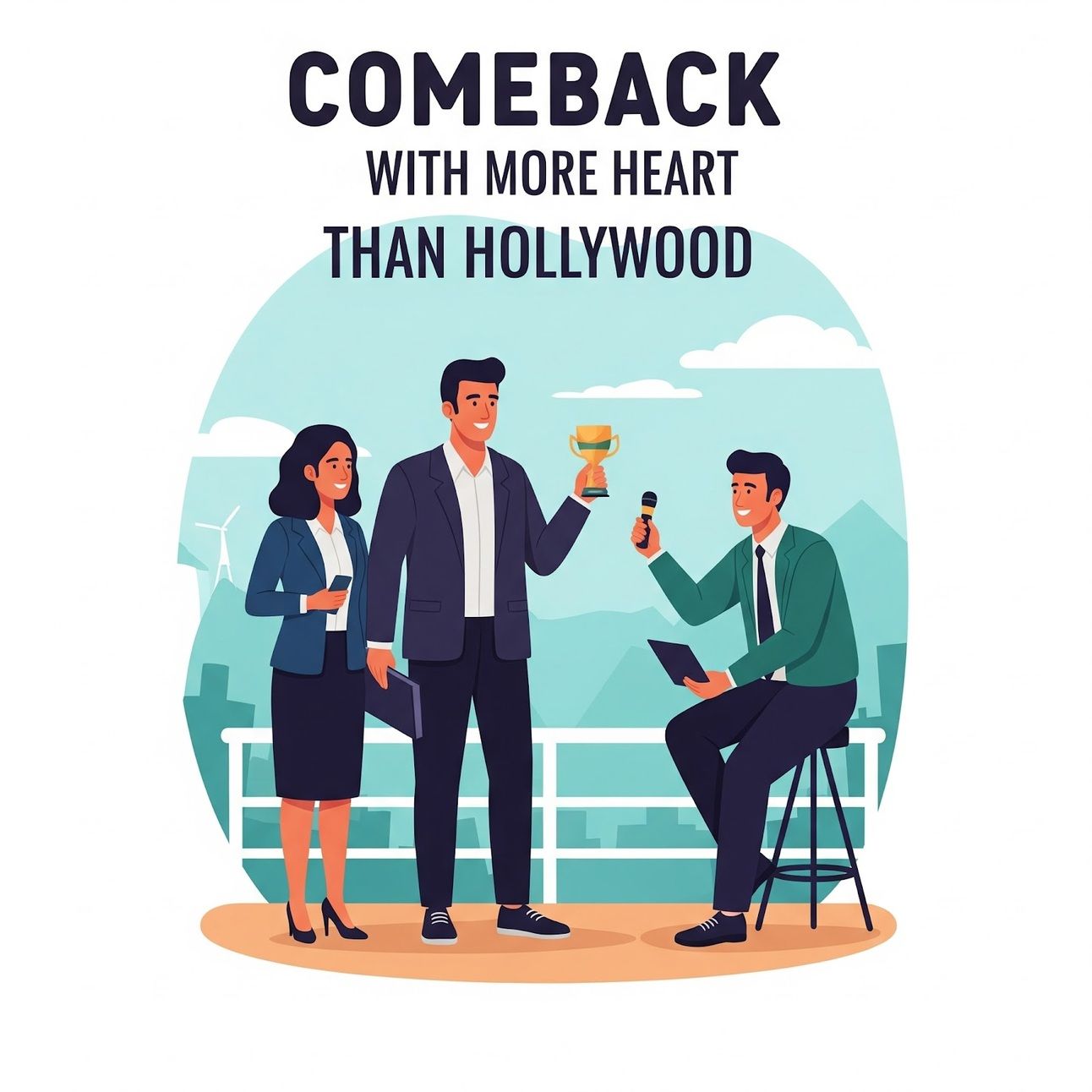
Tools for Sharing Your Journey
Tools for Sharing Your Journey
Simple Ways to Track, Reflect, and Communicate About Your Stroke Recovery
Sharing your stroke recovery journey—whether with your care team, family, or other survivors—can help you feel more in control and supported. Here are some free and easy-to-use tools designed for stroke survivors:
Personal Stroke Record
What it is:
A fillable template that helps you keep track of your stroke, your treatments, what matters most to you, and your recovery progress.Why it’s valuable:
It keeps all your important information in one place, making it easier to share updates with your care team and loved ones. It also helps you remember questions or concerns for your next appointment.Where to find it:
Downloadable as a digital PDF, or you can order printed copies. This tool was co-created by stroke survivors and professionals, so it’s practical and easy to use[5].
Stroke Logbook
What it is:
A printable or digital logbook to record your symptoms, appointments, test results, and daily progress.Why it’s valuable:
It makes it simple to spot patterns, track improvements, and remember details you want to discuss with your doctor. The logbook also includes checklists for hospital discharge and aftercare, so you don’t miss anything important[6].
Let’s Talk About Stroke Fact Sheets
What it is:
A series of short, easy-to-read fact sheets covering stroke types, risk factors, treatments, and life after stroke. Each sheet has space for you to write down questions, notes, or personal information.Why it’s valuable:
These fact sheets help you better understand your condition and give you a place to jot down thoughts or reminders for your next doctor visit. Some are available in Spanish, too[1].
Why Use These Tools?
They help you organize your thoughts and track your progress.
You can share your story more easily with your care team or support groups.
Writing things down can help you feel more in control and less overwhelmed.
Remember, your journey matters. Using these tools can help you see how far you’ve come—and make it easier to ask for the help you need.
AI-Generated Writing and Art
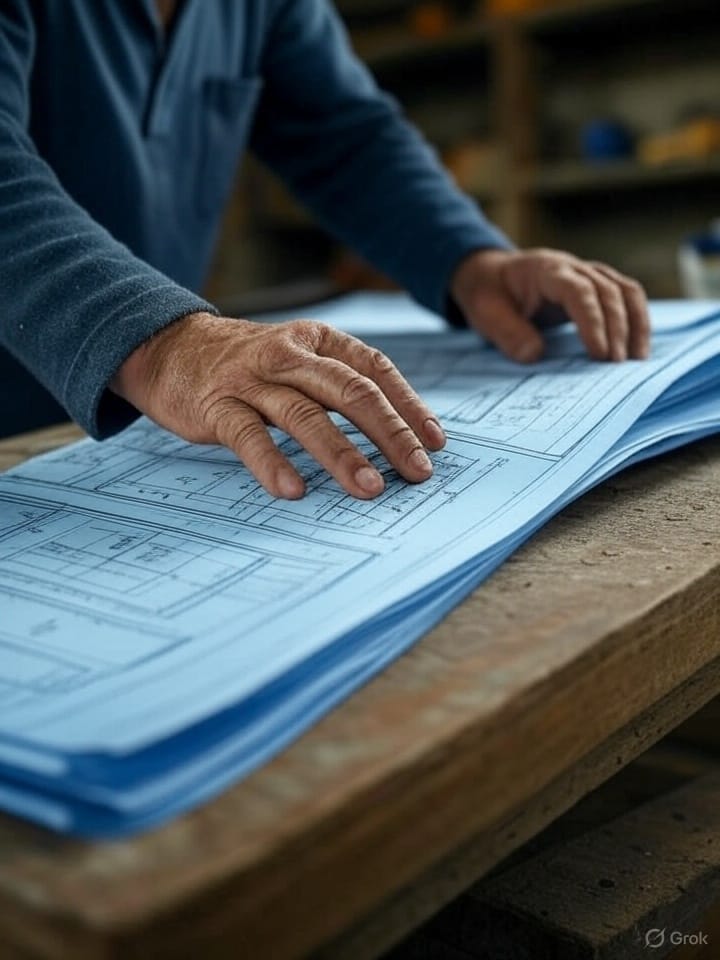
The Blueprint Revival
Luke, a stroke survivor, discovers old blueprints and builds an adaptive garden workshop, teaching his wife Abby that recovery means building who you're becoming, not returning to who you were.
The Blueprint Revival
The roll of paper crackled as Luke's fingers—still trembling six months later—pulled it from the dusty box. He hadn't meant to find his old engineering blueprints while searching for Christmas decorations. Now they lay before him like ghosts of precision, every blue line and careful measurement a reminder of steadier hands and clearer thoughts.
"Luke? You okay out there?" Abby's voice drifted from the kitchen door, followed by the familiar shuffle of her slippers across the garage floor.
He didn't answer right away. Couldn't, really. His speech was better now—the therapist kept reminding him of that—but sometimes words just... stuck.
"Found my old workshop plans," he finally managed, his voice thick. "Remember? I was gonna build this after I retired."
Abby set down two steaming mugs and studied the blueprint spread across his workbench. Her finger traced the detailed measurements, the precise angles he'd calculated for optimal workflow. Back when retirement meant golf courses and road trips, not speech therapy and grab bars.
"God, Luke. Look at all this detail. You were always so..." She paused, and he knew she was choosing her words carefully. "So thorough."
"Yeah, well." His right hand clenched involuntarily. "Can't even hold a pencil steady anymore. Much less a drill."
The silence stretched between them, filled with the weight of everything they'd lost. Everything that had changed that Tuesday morning when his words had turned to mush and his left side had simply... stopped.
"Who says you have to build it exactly like this?" Abby asked quietly.
Luke stared at her. "It's a blueprint, Abby. It's supposed to be exact."
"Says who?" She moved closer, her shoulder brushing his. "What if we... I don't know. What if we made it work for who you are now?"
The idea sat between them like a foreign object. Luke's engineering mind—slower now, but still working—began to turn it over. Adapt the plans. Modify the specifications. It went against every instinct he'd developed over forty years of building bridges and designing systems.
But then again, nothing about his life followed the original specifications anymore.
Over the next few weeks, the blueprint became their evening ritual. While Abby sorted through catalogs for adaptive equipment, Luke sketched modifications in the margins. His handwriting was shakier now, his left hand barely functional, but his problem-solving instincts hadn't disappeared—they'd just... evolved.
"What about raising the workbench?" he suggested one evening, his excitement building for the first time in months. "And these drawer pulls—if we made them longer, easier to grip..."
Abby looked up from her laptop, where she'd been researching voice-activated lighting systems. "You always complained I was too loud," she said with a grin. "Now it's a feature."
Luke laughed—actually laughed—and the sound surprised them both.
When their neighbor Tom knocked on the door with his toolbox, Luke's first instinct was to decline. "I used to do this stuff myself," he muttered, watching Tom measure for the foundation.
"And now you do it with help," Abby said, handing him his coffee. "That's not less, Luke. It's just... different."
The workshop took three months to build. Three months of Luke directing from his lawn chair, his weaker left side supported by cushions Abby had carefully arranged. Three months of problem-solving each accessibility challenge as it arose: magnetic tool strips at the perfect height, a rolling stool that supported his balance, workspace lighting that responded to his voice.
Each adaptation felt like a small victory. Not over his stroke—he was learning that wasn't the point—but over the voice in his head that insisted he was less than he used to be.
The day they finished, Luke stood in the doorway of his new workshop, tears blurring his vision. It looked nothing like the original blueprint. The workbench was higher, the tool storage completely redesigned, the lighting system something he'd never have imagined in his pre-stroke life.
"It's not what I planned," he whispered.
Abby slipped her hand into his stronger right one. "No," she agreed. "It's better. It's you—not the old you, but the you you're becoming."
Luke turned to study his wife's face. This woman who'd held his hand through neurologist appointments and celebrated the day he'd managed to button his own shirt. Who'd never once made him feel like a burden, even when he'd felt like one himself.
"I kept trying to get back to who I was," he said. "But maybe that's not the point."
"What is the point?" she asked.
Luke gestured toward the workshop, where late afternoon sun illuminated workbenches built for his new reality. "Building who I'm becoming. This isn't about returning to my old blueprints. It's about drawing new ones."
That evening, Luke sat at his adapted workbench, carefully sketching plans for a raised garden bed. Something that would work for Abby's bad knees and his limited mobility. Each line he drew was slightly unsteady, but every measurement was calculated with love.
"Your story, your strength," Abby read aloud, noticing the words he'd written at the top of the new blueprint. "I like that."
Luke looked up at her, his voice stronger now. "It's not about what happened to me. It's about what I'm building because of it."
Outside, the workshop's voice-activated lights flickered on, ready for whatever tomorrow would bring.
That's it for this week's newsletter, dear Stroke Warriors! Keep in mind,life doesn't stop after a stroke – it's an opportunity to embrace new experiences. Remember, you are not alone on this journey, you are strong, and together, we can overcome any challenge.. Embrace your rehabilitation with determination, and know that progress is within reach.
Disclaimers
Disclaimer:
The information provided in this newsletter is for general informational purposes only and is not intended to constitute professional advice.
Medical Disclaimer:
The content shared in this newsletter is not intended to be a substitute for professional medical advice.
Accuracy Disclaimer:
While we make every effort to provide accurate and up-to-date information, the content in this newsletter may contain errors, omissions, or inaccuracies.
We hope you found the information valuable and informative.
With the assistance of AI, I am able to enhance my writing capabilities and produce more refined content.
This newsletter is a work of creative AI, striving for the perfect blend of perplexity and burstiness. Enjoy!
🌟 Exciting News 🌟
We're thrilled to share that Chuck's journey doesn't stop here. If you're curious about the fascinating world of ChatGPT and artificial intelligence and AI's potential for learning and growth, be sure to check out our sister newsletter, "Chuck Learning ChatGPT"! Discover how Chuck is diving into the realms of AI, exploring innovative ideas, and sharing insights that could inspire new perspectives. To join Chuck on this exciting AI adventure, subscribe to "Chuck Learning ChatGPT:
📡 You’re bored of basic binge content.
🔍 Stories feel scripted—no mystery, no challenge.
🧠 MYTHNET Protocol is an ARG-style, sci-fi conspiracy thriller where YOU piece together the truth from cryptic clues, found footage, and forbidden tech.
✅ Hit play. Decode the myth. Join the protocol. Escape the ordinary.
🎥 Subscribe now.
Channel URL: https://www.youtube.com/@MYTHNET_Protocol
Stay curious, stay inspired, and keep embracing new possibilities with us\!
As always, if you have any feedback or suggestions, please don't hesitate to reach out to us. If you have a experience that you would like to share you can reach out to us here :
Keep an eye out for our next edition, where we will be sharing inspiring stories of triumph and resilience from our community.
Join the Journey of Hope: Subscribe to our free newsletter and be part of the incredible journey of hope as we share inspiring stories of stroke Warriors like Luke and their triumphs over adversity. Receive exclusive content and valuable insights into stroke recovery and caregiving, all delivered straight to your inbox. Issue #102: Life After Stroke - The Truth Nobody Talks About
Share the newsletter on your Social Media!
Join us in supporting the Chucks Stroke Warriors community with a newsletter sponsorship. Reach a targeted audience and promote your brand. Limited sponsorships are available, contact us for more information at:
Until next time!
Keep fighting and stay resilient!
With warm regards,
Chuck and the Stroke Warrior Team
P.S. If you missed last week's newsletter on “ Issue #102: Life After Stroke - The Truth Nobody Talks About” you can catch up here:
Reply